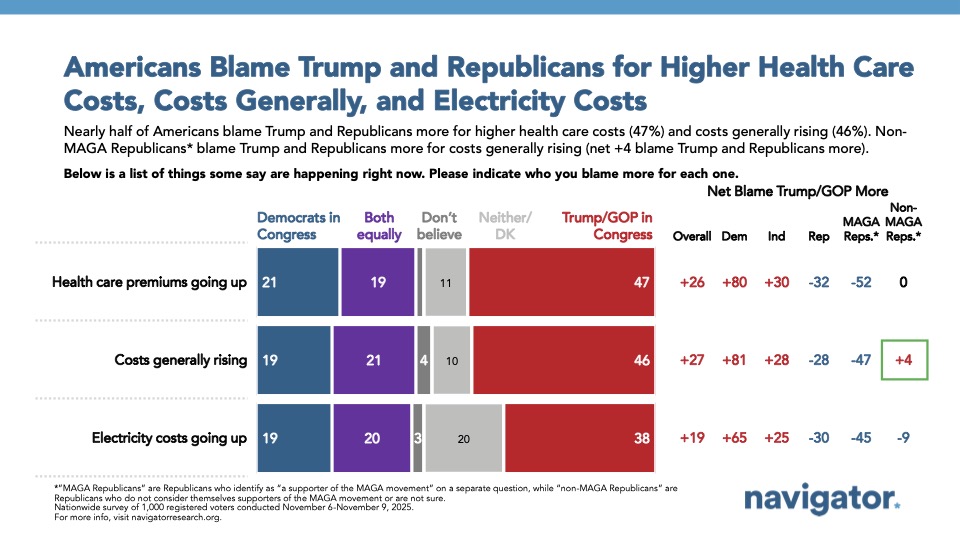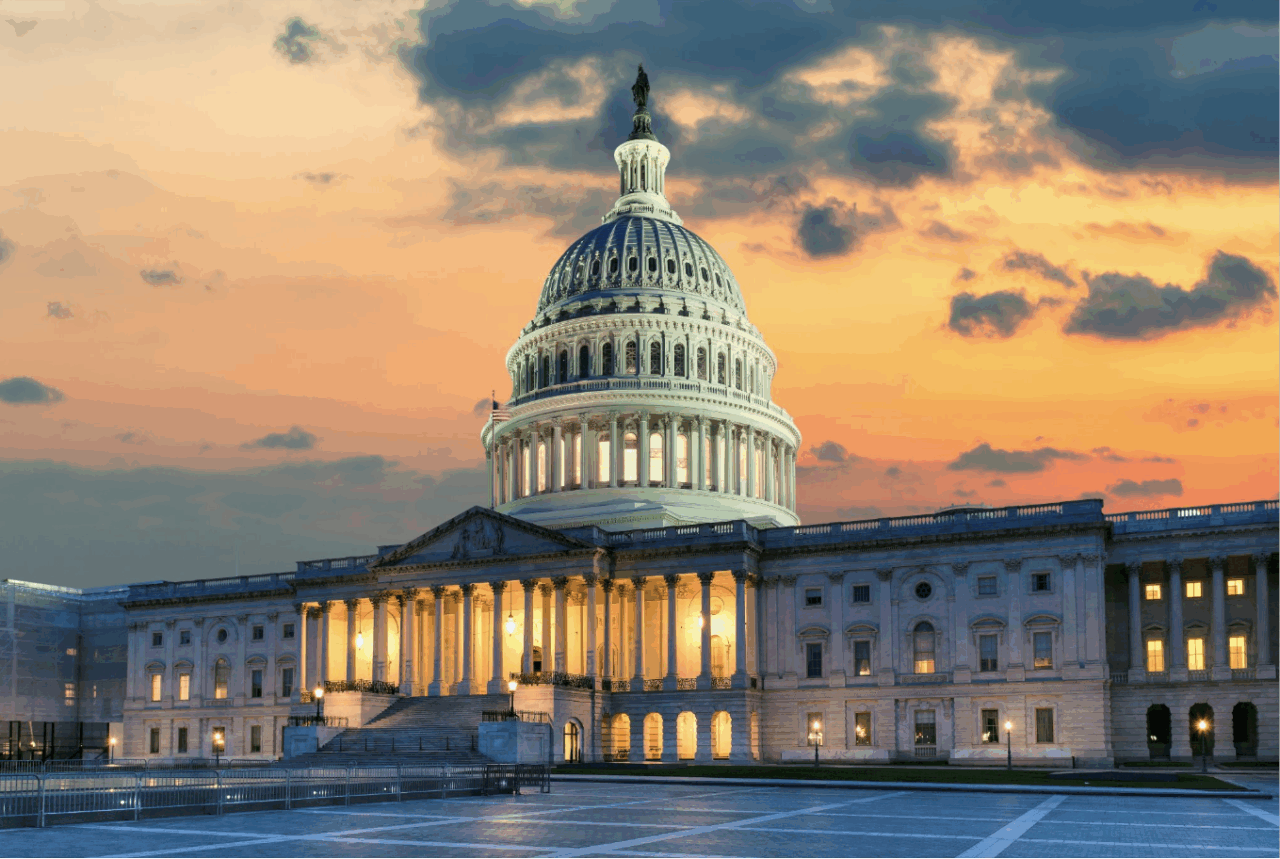Poll: Government Shutdown
This Navigator Research report covers the latest views of the government shutdown and its impacts ahead of the Senate’s move to end the shutdown.
Over the weekend, 87% of Americans said they had now heard about the current government shutdown, including 57% who have heard “a lot.” This is a 47-point increase since September before the shutdown began. 85% were concerned by the government shutdown entering its 6th week with no clear end in sight.
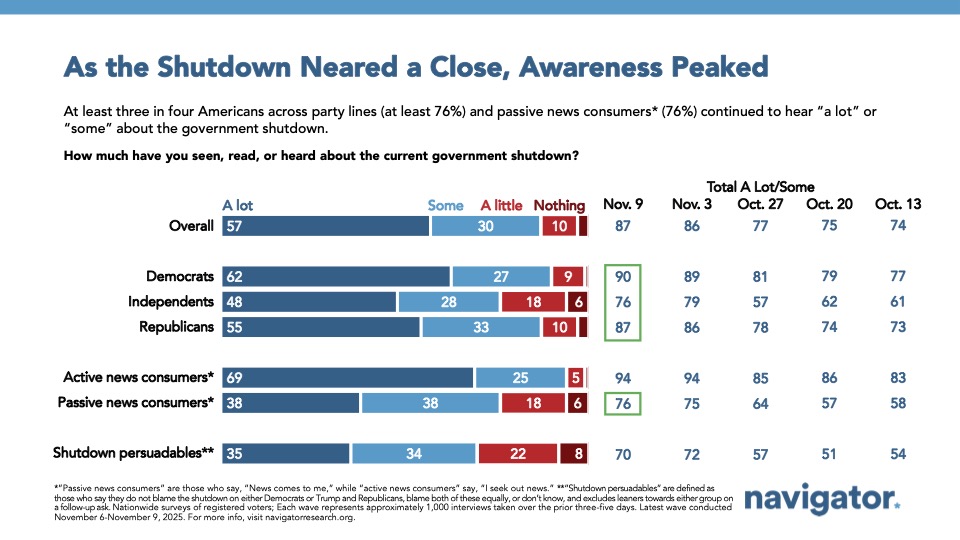
Blame for the shutdown remained overwhelmingly consistent over the last six weeks: Americans continued to place the blame on President Trump and Republicans in Congress (48%) more than Democrats in Congress (34%), including independents by 22 points.
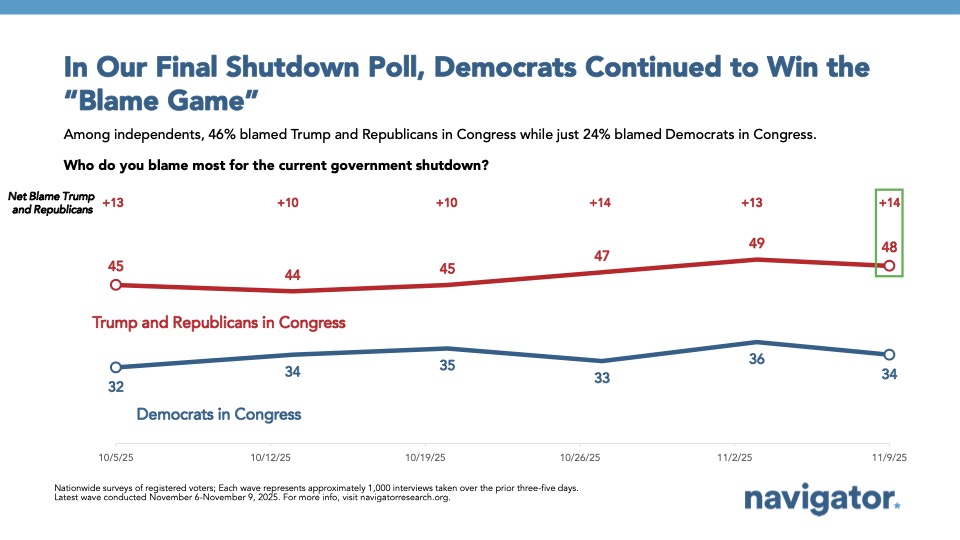
Views of what congressional Republicans and President Trump were fighting for in the shutdown worsened as it wore on, while views of what Democrats were fighting for broke even.
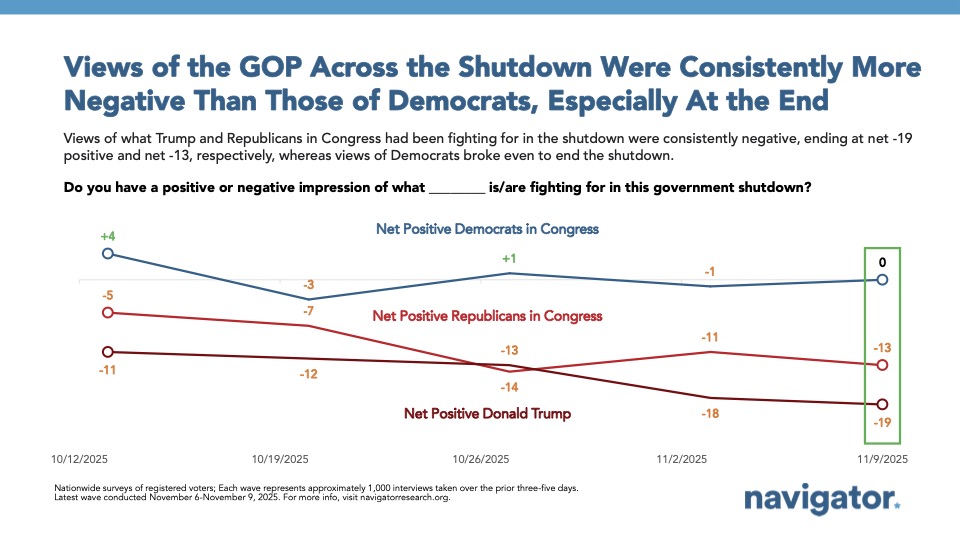
The Toll on Trump
Over the course of the shutdown, a growing majority grew to disapprove of President Trump’s overall job approval (from -10 to -18) and his handling of the economy (from -15 to -21).
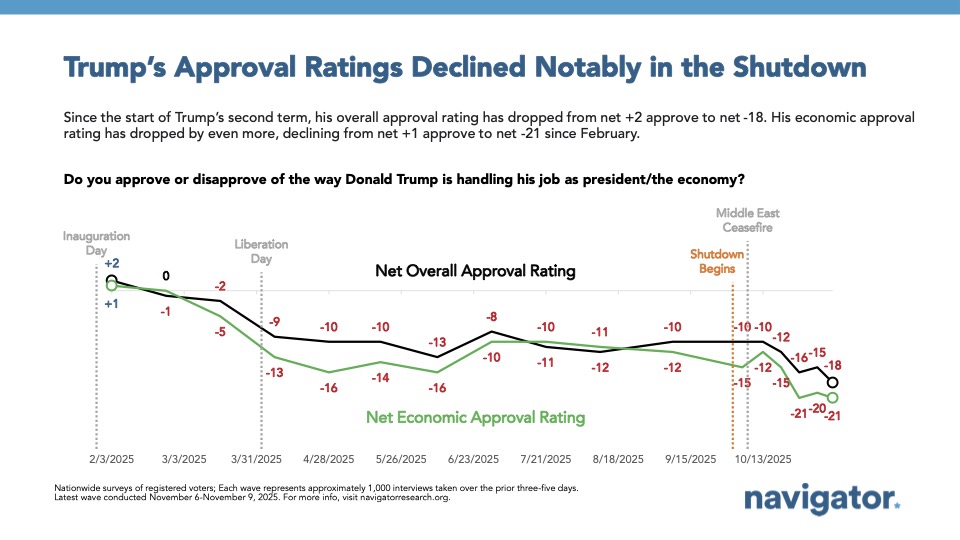
Those who disapprove of his handling of the economy cite “tariffs,” “prices,” and “inflation.”
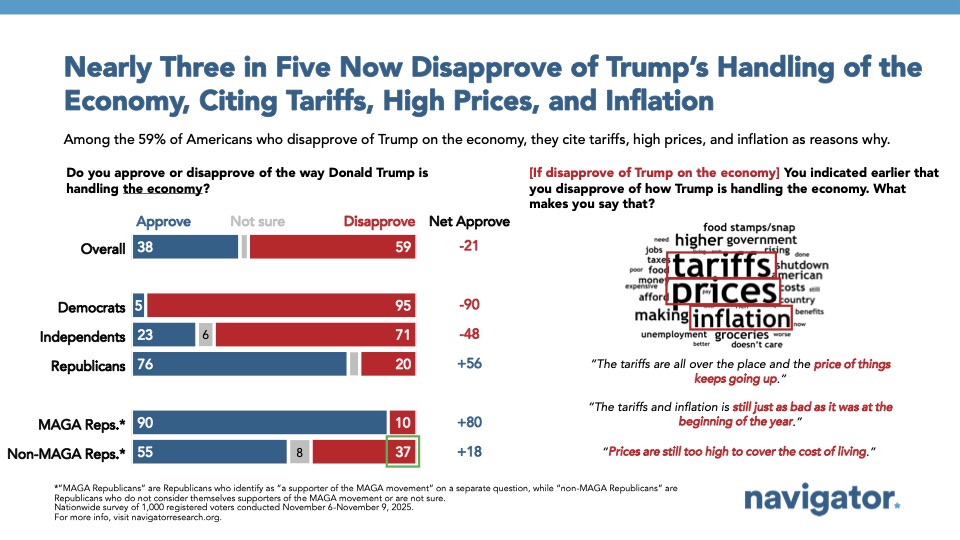
Among those who voted for Trump in the 2024 election, a third say they either regret voting for him (16%) or are disappointed (16%) in how he is handling being president. They point to both the government shutdown and the economy as reasons for their disappointment and regret.
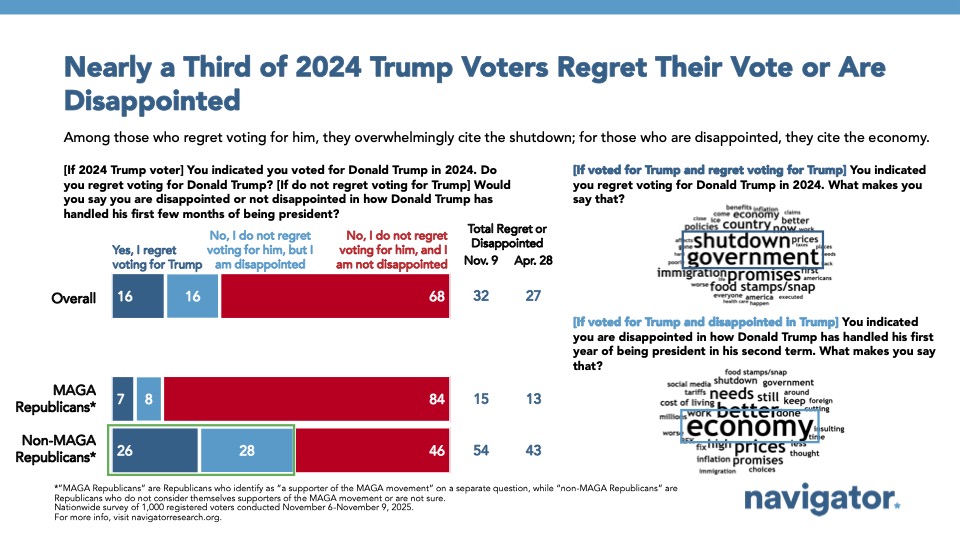
When it comes to the overall news Americans are hearing specifically about Trump, 78% say they are hearing negative news. News sentiment towards Trump has remained consistently negative throughout the course of the shutdown. When citing what negative news they are hearing, “SNAP” and “food stamps” dominate the conversation.
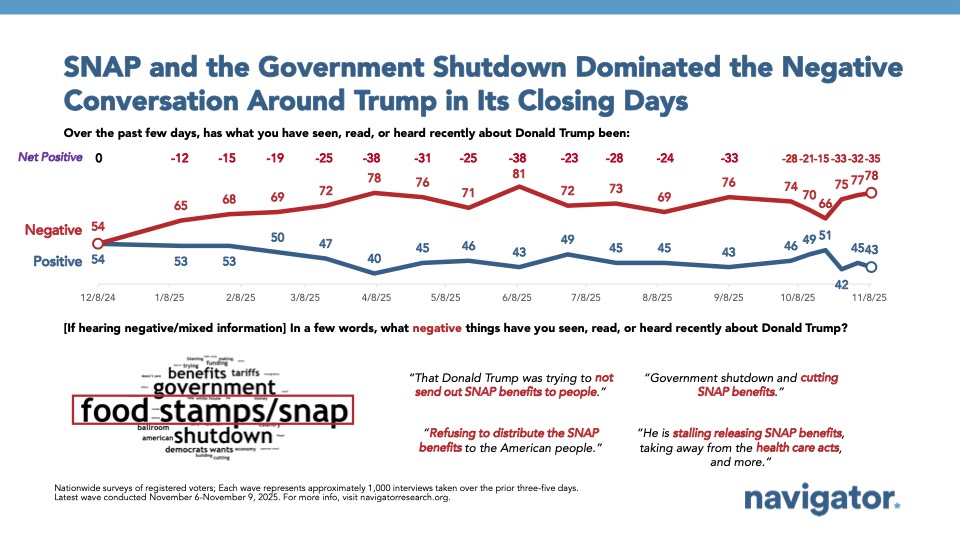
Americans overwhelming agreed (69%) that Trump’s excessive spending on lavish expenses like a new White House ballroom, gold fixtures in a bathroom, and private jets is inappropriate at a time when millions of Americans aren’t receiving the basic food assistance and health care they need – rejecting the narrative that these are unrelated to the shutdown or that they are permissible because they are paid for by private donors.
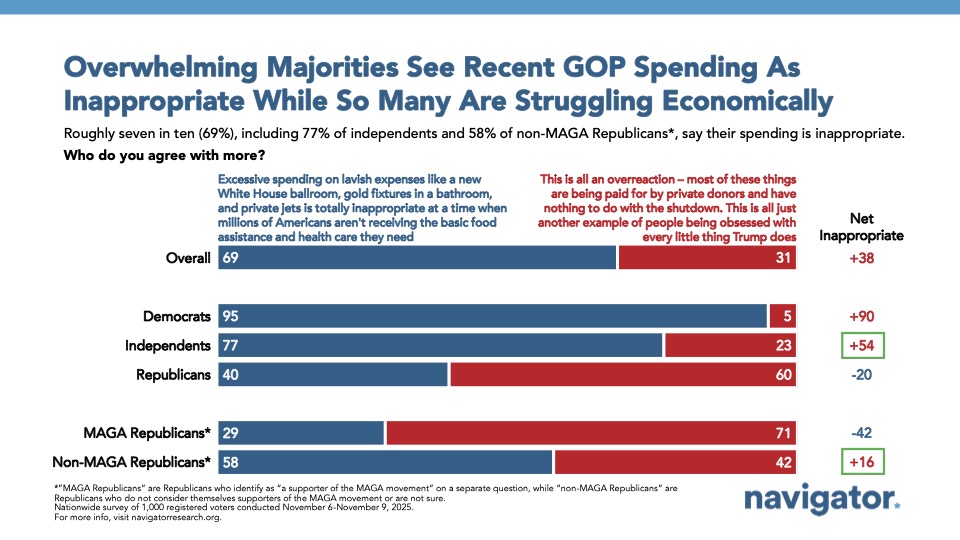
Americans describe the Trump Administration’s behavior as “selfish” and “uncaring” as the government remains shut down and millions lose access to food assistance.
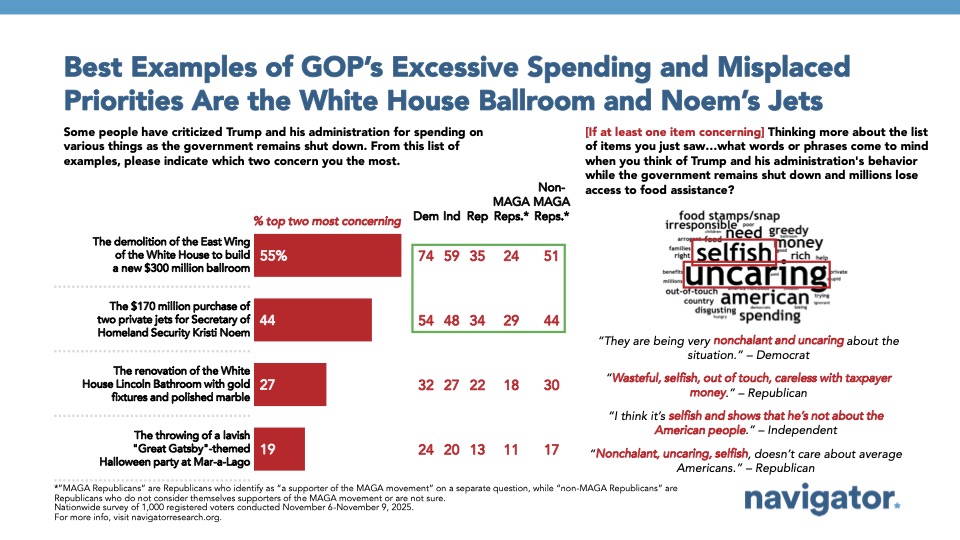
Impact of the Shutdown
As the shutdown wore on, Americans increasingly believed it would have a negative impact on the country, up by 17 points from early October (68% to 85%). As SNAP’s funding lapse continued, more Americans also saw the government shutdown as negatively impacting them. The share who said the government shutdown would negatively impact them personally increased by 23 points over four weeks (from 42% to 65%). When asked why the shutdown would have a negative impact on them personally, “food stamps” and “SNAP” are overwhelmingly cited.
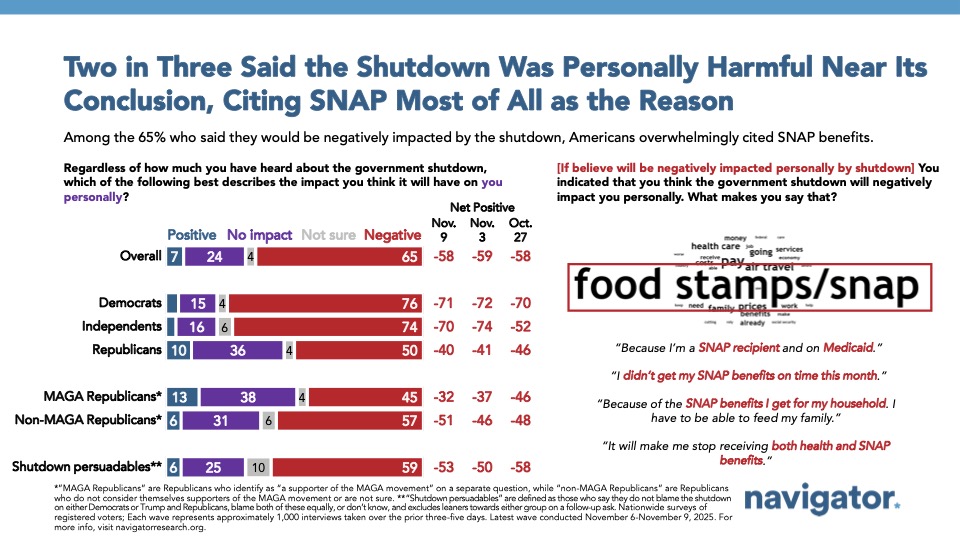
A majority blame Trump and Republicans in Congress for SNAP’s funding lapsing (52% blame Trump and Republicans – 32% blame Democrats in Congress), including 50% of independents. This has remained consistent throughout Navigator’s shutdown tracking.
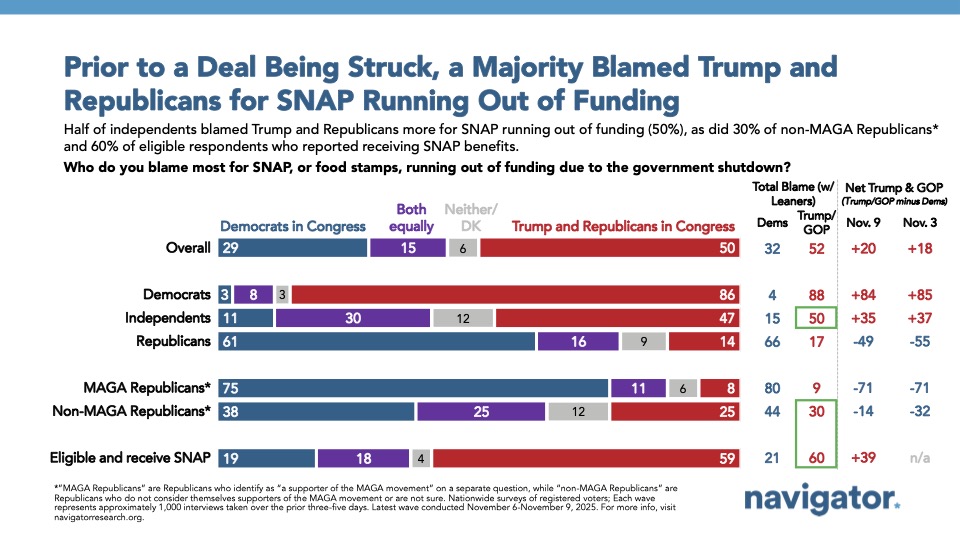
The Latest on Health Care
Following the start of open enrollment for millions of Americans, over seven in ten believe the cost of health care is going up (73%), a 13-point increase since July, and by a margin of 49 points Americans say their health care premiums are also going up. When asked about their top concerns about health care as it relates to the government shutdown, 38% cited the cost of health care doubling for 22 million Americans, and 38% cited nearly 5 million Americans losing their health insurance completely.
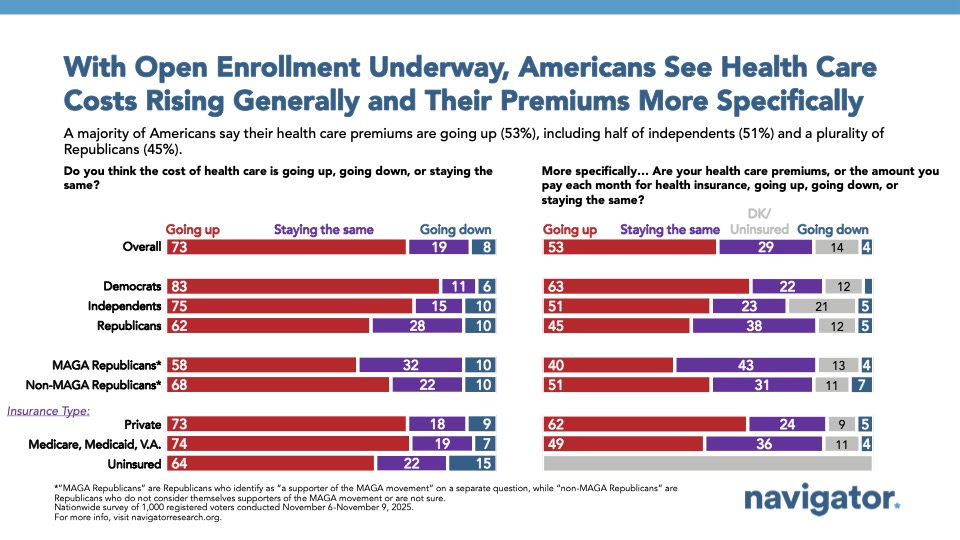
By a 26-point margin, Americans blame Trump and Republicans in Congress (47%) more than Democrats in Congress (21%) for health care premiums going up.
